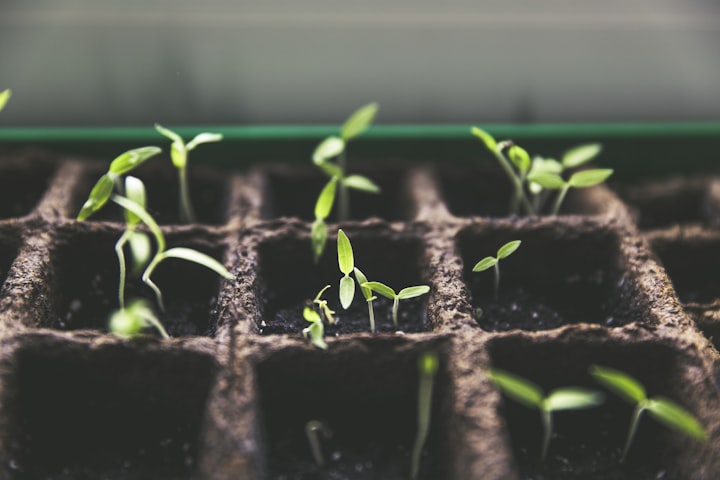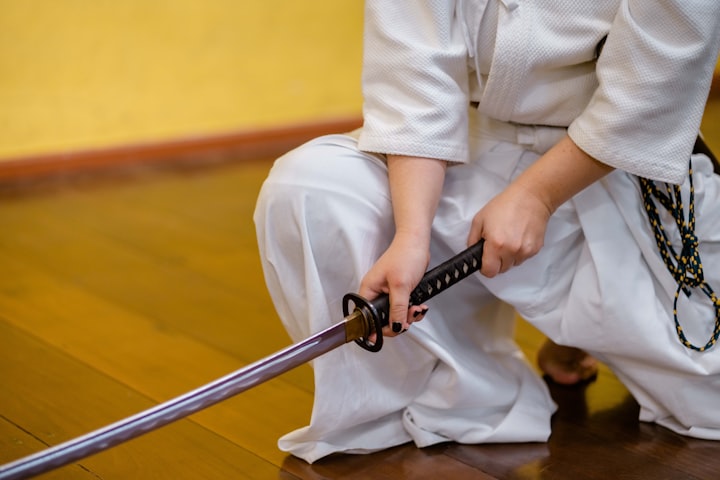Green Thumbs
Why gardening is the creative activity that everyone should try.

I have a passion for plants.
Nothing brings me more tranquillity and satisfaction than time spent in the garden. Some people see gardening as little more than manual labour: all sweat and toil. They think of shovelling compost and earth, of tearing up deep-rooted weeds, of a great struggle with nature. They are wrong.
There is art in planting a flowerbed. It takes foresight. How will these tiny seedlings and plant plugs look in six months’ time? Will they grow upwards, gaining inches by the day, or spread outwards, sprawling across the ground? How will they look during the height of summer when they are in full bloom? You have to imagine the colours and the shapes, the array of heights and widths. It is like painting a picture of the future. Sometimes it is a picture that you will never see; that tree will take decades to reach its full height. Gardening teaches us to think beyond ourselves.
There is also beauty in working with nature, not against it. Yes, occasionally war must be waged against weeds and colonising climbers hacked back, but the joy of gardening comes from trying to support the natural world, not imposing order on it. Honeysuckle would not be as glorious if it grew in straight lines; there is charm in the rambling twists of its vines. A bed of wildflowers sown in rows would not have half the appeal of a rambling mass of stalks, leaves, and petals, swarming with bees and butterflies. Nature is not preoccupied with seeking perfection, least of all what humans define it as.
Gardening has taught me patience. This is one of its greatest lessons. You cannot rush nature. There are no magic beans here; nothing goes from seed to tree overnight. You have to wait and trust the soil, sun, and rain to do their work. Anyone who has not experienced this first-hand might assume that it is frustrating, but they would be mistaken. It is liberating. It teaches us not to worry about things beyond our control and gives us the absolute joy of anticipation; of waiting for that first leaf to break through the soil; of seeing, day by day, new shoots appear; of wondering when the bud will finally unfurl into a new leaf or flower. When all of those things happen, you can bask in the joy of knowing that you helped it come to pass.
Gardening has also taught me to take pleasure in the small things. You do not have to climb Kilimanjaro to find wonder. For me, it is in the scent of star jasmine, trailing up a trellis, and in the buzz of a bumblebee as he disappears into a foxglove grown from seed. I could watch the bees for hours, navigating their way from poppy to lavender to allium to lupin. Even the sensation of dirt beneath my fingernails and grubby, muddy hands makes me feel closer to nature.
Another lesson is that of perseverance. When working with nature, much like with children and animals, success is not always guaranteed. Sometimes, a plant may just not take to the soil, or a wet spring with unleash slug Armageddon upon unsuspecting seedlings. Other times, an unusually late frost may strike, or a gale may tear down un-staked sunflowers. Do not give up. The plants won’t and neither should you. I have seen plants be devoured down to the last leaf and still grow back to full size; bent and broken stalks have been tied back in place and recovered. One of my favourite parts of the garden centre is the discount aisle, the home of wilting and unwanted specimens. Few things are more satisfying and heartening that taking a damaged and dying plant and giving it a new lease of life. Much like people, plants just need a bit of care to thrive.
I got my passion from my parents. My earliest memories all involve the garden: standing in my dad’s clothes in the middle of a vegetable patch; trying to haul home-grown pumpkins bigger than me up to the house; watching my mum prune roses and hedges. After three decades on this planet together, which included many arguments, a divorce, and much growing apart, our love of gardening remains the one unifying theme in our relationship. It is a safe haven of conversation when other avenues lead to dead ends or arguments and an easy way to remind ourselves of what we have in common.
Gardens are places of peace. My strip of land may be small, but it is my sanctuary from all other things. It is the first place that I go after a day at work, for no other reason than to soak up the atmosphere and to see what tiny but magical details have changed since the sun last set. There’s no need to sit cross-legged and hum when you can stand in the midst of shrubs and flowers and listen to the sound of birdsong.
Gardening is for everyone. There is no secret society of green thumbed gardeners that you need admittance to. Whether your garden is a window box or balcony, or a vast allotment or estate, it is something that you can take pleasure in. You can grow whatever you like; pollinator flowers, vegetables, cacti, flowers for cutting and arranging, fruit; grow whatever brings you joy. And while you garden, take time to admire your work, to build a connection with nature. You’ll feel calmer and happier as a result; don’t just take my word for it, multiple studies have shown the health benefits of gardening.
I have a passion for plants. After reading this, I hope that you do too.
About the Creator
Alex Hawksworth
Full time History teacher and part time writer. I try to write the kind of stories I would like to read.






Comments
There are no comments for this story
Be the first to respond and start the conversation.